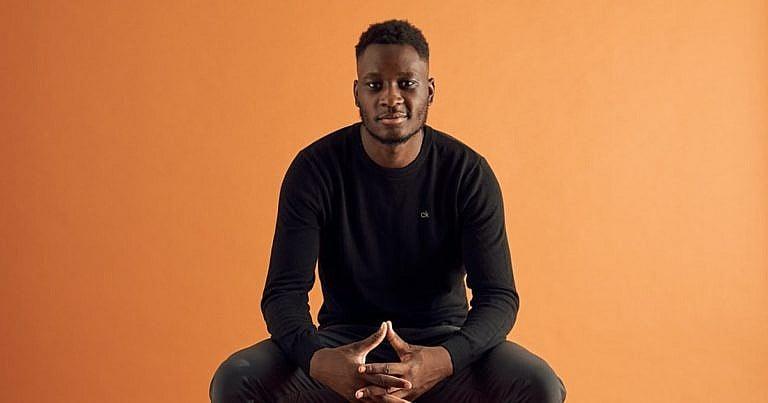The Prospect: Meet the 22-year-old CEO using AI to boost kids’ mental health
With his new app, Blue Guardian, Emmanuel Akindele is putting social media to good use

Share

Kids today spend hours curating photo dumps for Instagram and going live on TikTok while eating cereal. Virtually no element of their lives is left unposted. But how are they doing, really? Emmanuel Akindele was just a kid himself when he came face-to-face with the stark disconnect between the online and inner lives of his peers. In 2018, when he was a Grade 12 student in London, Ontario, one of his classmates took their life. Friends and parents admitted they had no idea the student had been suffering at all. The event inspired Akindele, who struggled with anxiety, to try to close the conversational gap around mental health between kids and their caregivers—using technology.
In 2020, Akindele canvassed parents around London, offering to host Snapchat and Instagram info sessions over Zoom for $50 a pop. (His entrepreneurial instincts started early: he delivered newspapers at nine and offered lawn aeration services at 12.) One thing became immediately clear: “Most parents have no fundamental understanding of social media,” he says.
RELATED: This Toronto social worker is seeing a surge of anxiety and depression in kids post-pandemic
By 2021, Akindele was partway through an economics degree at Western. In his off hours, he was dreaming up something big: an app that leveraged AI to track users’ mental health by analyzing everything they typed into their phones. He called it Blue Guardian, and that summer, he was accepted into the Ivey Business School’s Morrissette Entrepreneurship Accelerator on the strength of his idea. Exiting the program, Akindele had $10,000 in funding but little technical know-how. He reached out to Kyle Lacroix, a Western master’s student who had worked on AI-focused projects at the university. They hired 30 experts—developers, cybersecurity whizzes and psychologists—to bring Blue Guardian to life.
Akindele likens the app’s current iteration, which launched on the App Store in May, to Grammarly, but for mental health, in that it detects subtle language cues that indicate a user’s mood might be deteriorating. (For example, people with depression tend to use more absolutes, like “always” or “never.“) Users can also share results with friends, therapists—even their mom and dad.
Akindele, now 22, would rather quantify Blue Guardian’s success with testimonials from parents, many of whom say their stress is lower post-download. But the hard numbers are solid, too: in April, Akindele won a $20,000 pitch competition at the Black Innovation Summit run by the DMZ, an incubator at Toronto Metropolitan University. This summer, his team headed to San Francisco in search of investors. Running a startup is stressful, but Akindele’s got a reliable way to mind his moods.
***
P O P Q U I Z W I T H A K I N D E L E
Favourite social medium: Twitter
First concert: Western University’s 2018 PurpleFest homecoming concert, featuring headliners Juice WRLD and Lil Uzi Vert
Coffee order: Stok Cold Brew, sold by the jug at Costco
Offline pastime: Watching documentaries. (Okay, occasionally on YouTube.)
Background sounds: “I’m not on TikTok, but I’ll go on Spotify and play a ‘trending on TikTok’ playlist.” His favourite genres are rap and Afrobeats.